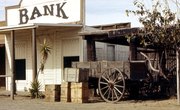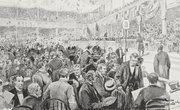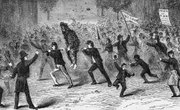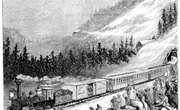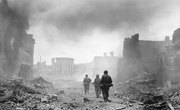The stock market was established in 1792 when a number of large merchants began to meet daily on Wall Street. This continued throughout the 1800s and beyond. During the 19th century, the economic conditions in the country were controlled heavily by the stock market, rising and falling just as they do today.
Panic of 1817
Following the War of 1812, cotton prices collapsed. In 1817, this culminated in a fall in the availability of credit and a number of foreclosures of farms throughout the country. Bank failures continued until 1821 and helped solidify the connections between politics and the economy with the rise of Andrew Jackson.
British Influence
The stock market had a number of good years following the Panic of 1812. However, in 1837, the wheat crop failed and the economy of Britain collapsed. This led to the failure of a number of New York brokerage firms and a loss in the value of labor. The stock market recovered its losses by 1843.
First Railroad Collapse
In 1857, the most popular stock on the market was railroad securities. The Ohio Life Insurance and Trust Company, which had invested heavily in the market, suddenly collapsed. This led to the seizing of liquidity in more than 900 firms in New York. Recovery took two years.
Second Railroad Collapse
Railroads continued to be a popular commodity within the market over the next two decades. In 1873, another firm, Jay Cooke and Company, went bankrupt and caused the stock market to drop heavily. This caused a depression that lasted five years. Three million Americans lost their jobs, and poverty spread across rural America as food prices dropped.
Panic of 1893
Following a short period of recovery, the market again collapsed in 1893. Panic on Wall Street caused mass sell-offs. This resulted in a severe credit crisis, and 16,000 businesses failed. Nearly one in six Americans lost their jobs. The market finally recovered in 1897.
Related Articles
References
Writer Bio
Jason Chavis has been a professional freelance writer since 1998. He is the author of four books, two movies and a play as well as numerous articles for "Scientific American," The History Channel, City Pages and "The Onion." In 1996, Chavis won the award for "best science fiction/fantasy" from the River Valley Writer’s Conference.



